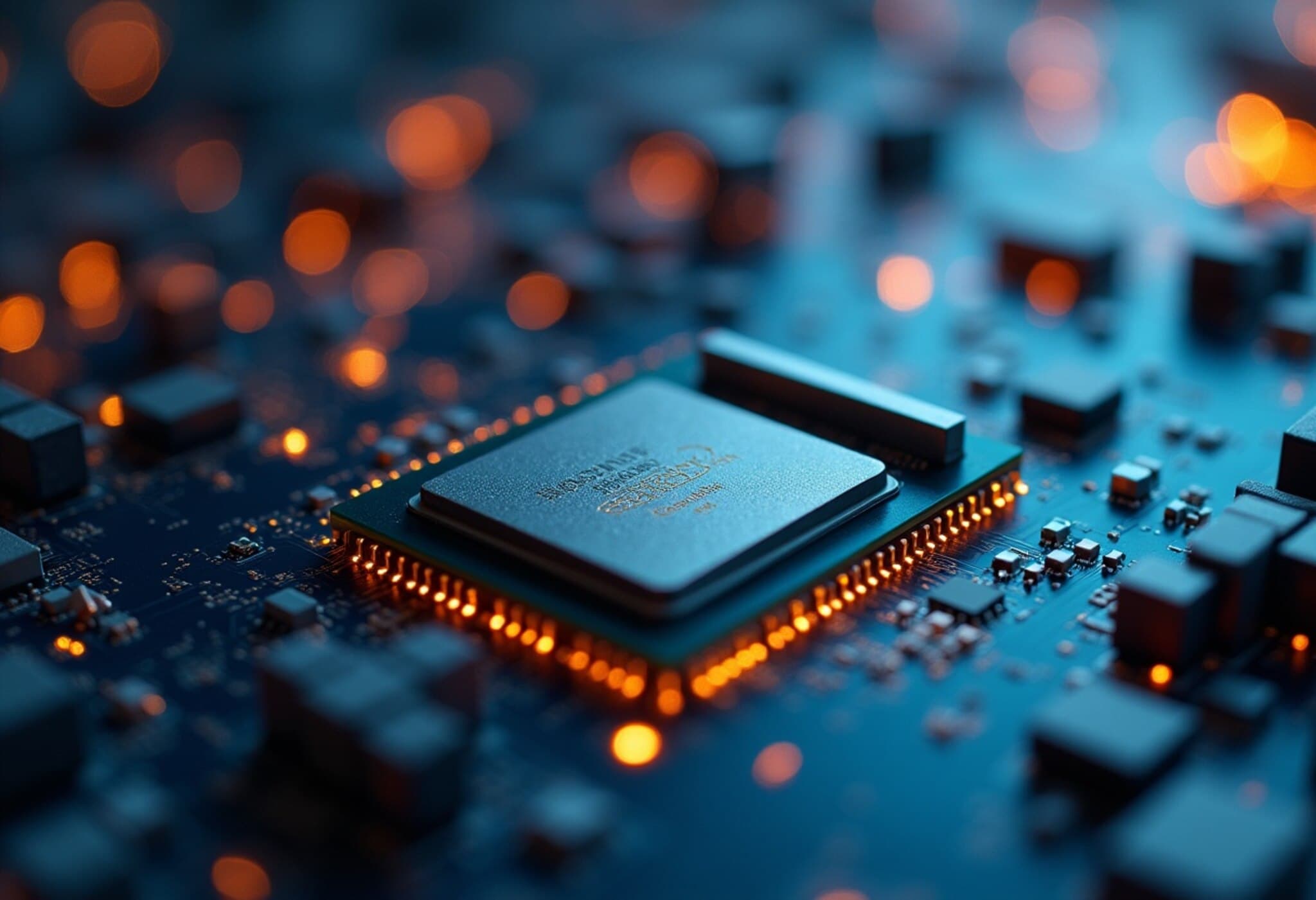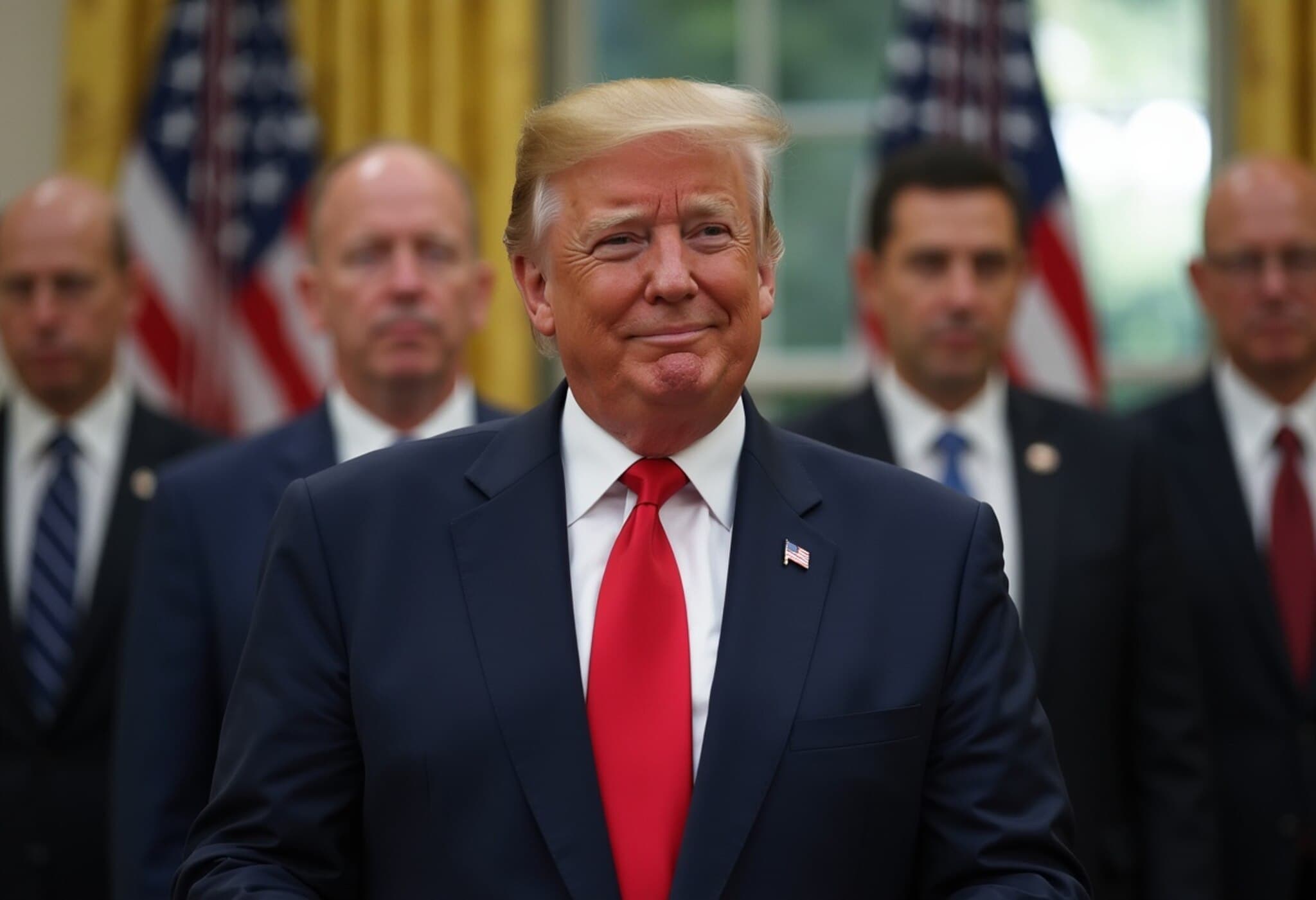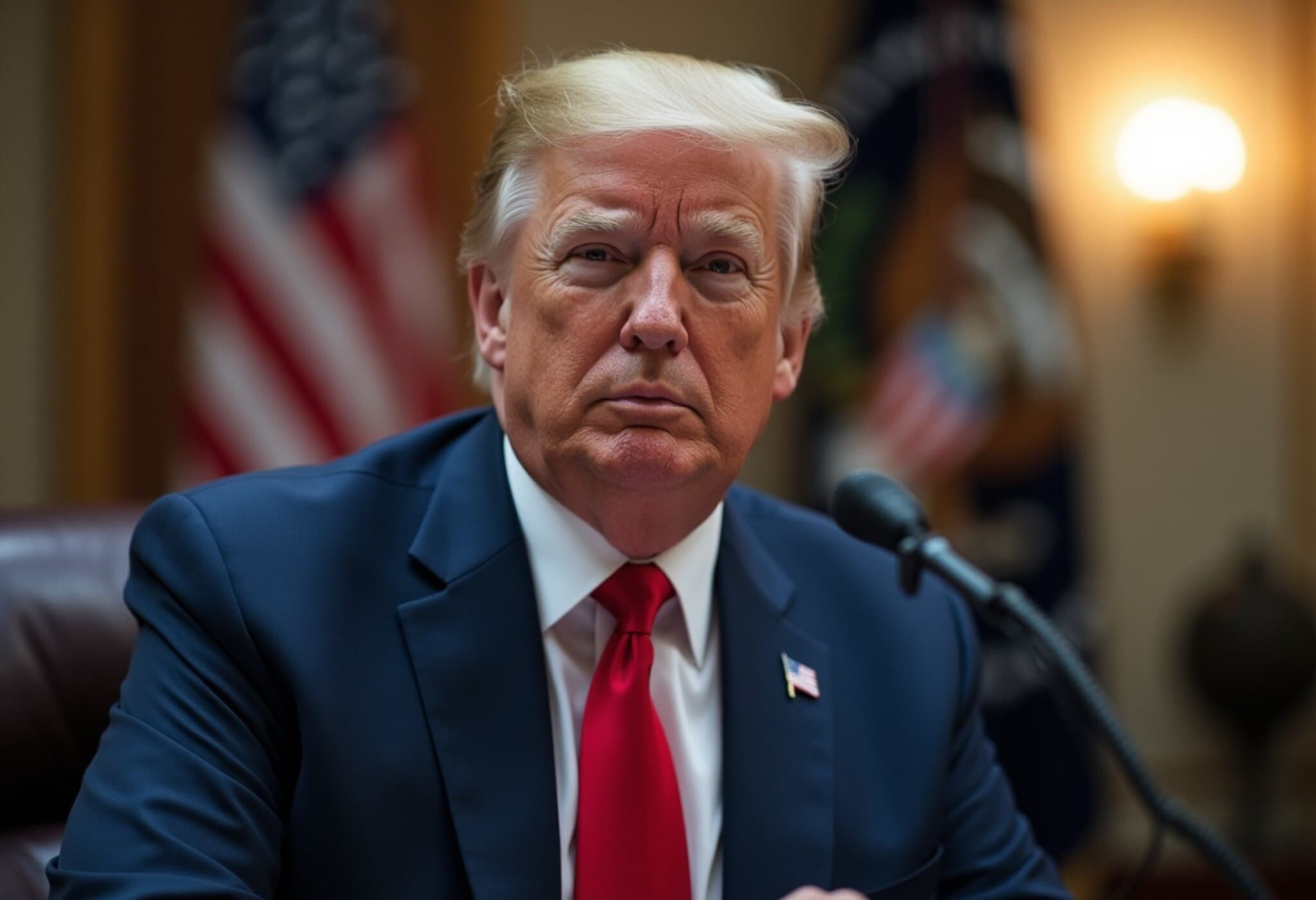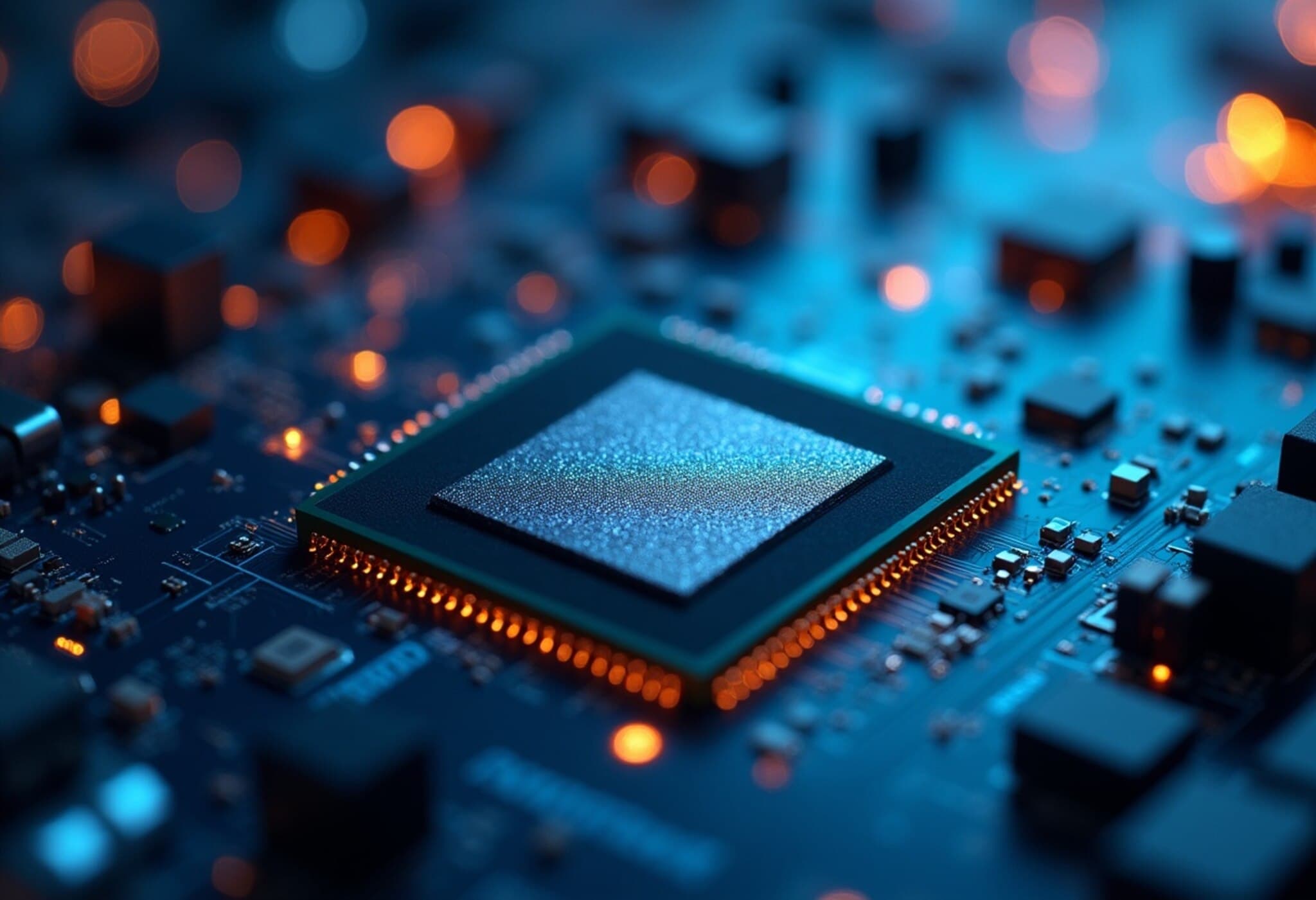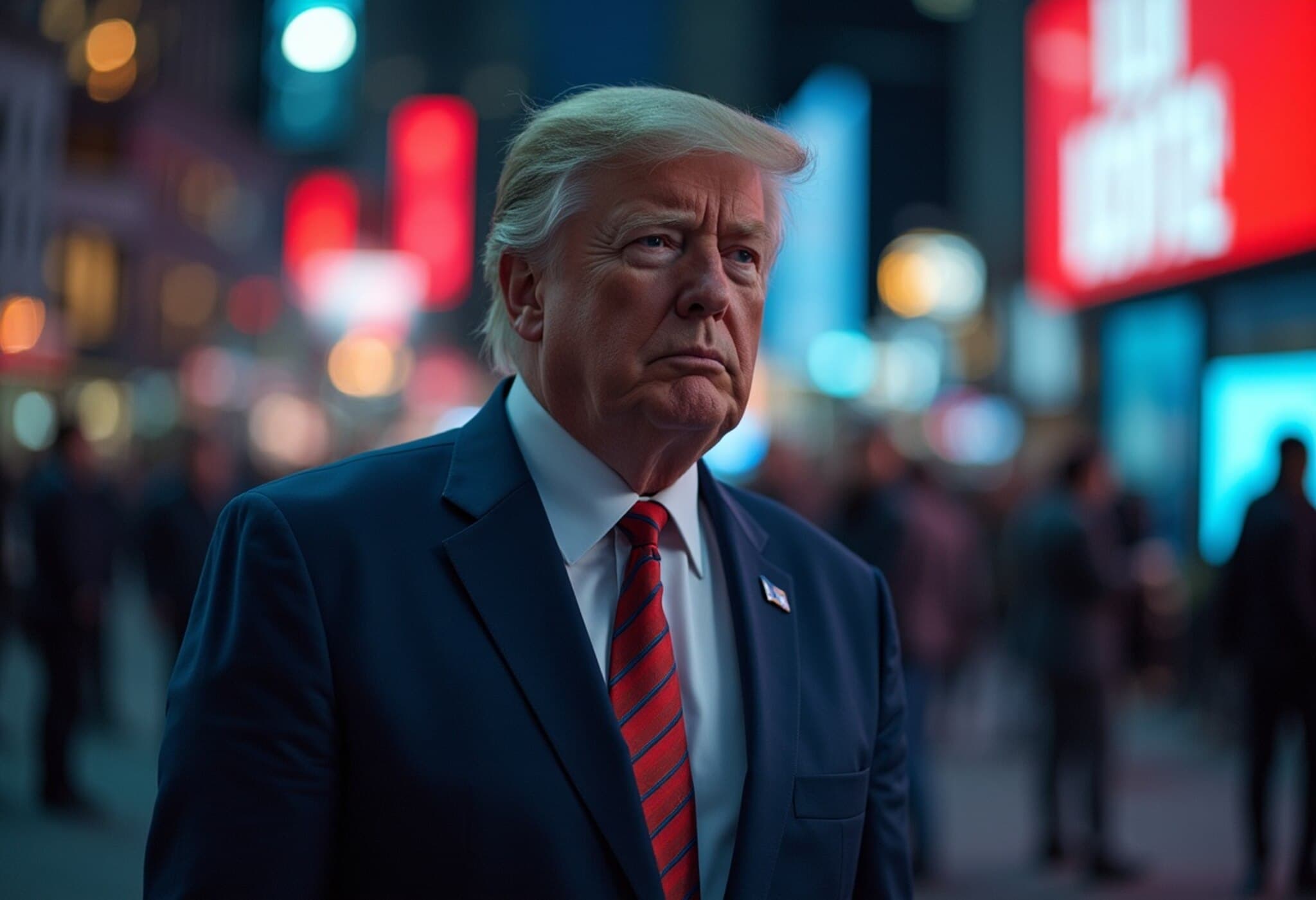Trump Administration Considers Taking Stake in U.S. Chipmaker Intel
In a move emblematic of the growing entanglement between politics and business, the Trump administration is reportedly exploring the possibility of acquiring a stake in Intel, America's premier semiconductor manufacturer. This development underscores the strategic importance of domestic chip production amid rising tensions with China and a global semiconductor shortage.
Intel stands as the sole American chip manufacturer capable of producing advanced processors on U.S. soil, distinguishing itself from foreign competitors like Taiwan Semiconductor Manufacturing Company (TSMC) and South Korea’s Samsung, which operate U.S. manufacturing plants but remain headquartered abroad. The reported government interest sent Intel’s shares surging by 7.4%, reflecting investor optimism about heightened federal support.
Context: The Geopolitical Semiconductor Battlefield
The semiconductor industry has become a frontline in geopolitical competition, especially between the U.S. and China. Recent reports detailed that tech giants Nvidia and AMD are set to pay the U.S. government a significant fee related to chip sales in China, signaling increased governmental control over sensitive technology transfers. Adding to the complexity, Apple has also encountered new regulatory pressures.
This push to bolster domestic chip capacity aligns with Washington’s broader strategy to maintain technological supremacy and safeguard critical supply chains. Having the administration potentially take a stake in Intel represents a rare and potent fusion of business and public policy — one that raises important questions about government involvement in private enterprise.
Economic Updates: China’s Growth Slows Amid Adverse Weather and Structural Challenges
July’s economic data from China painted a muted picture, with retail sales, industrial output, and fixed-asset investments all missing expectations. The National Bureau of Statistics attributed much of the underperformance to extreme weather conditions, but long-standing structural issues and regulatory tightening also weigh on the world’s second-largest economy.
Implications for Global Markets
- China’s economic slowdown could temper global growth prospects and impact commodity markets.
- Investors are watching for possible policy adjustments from Beijing to stabilize the economy.
Berkshire Hathaway Deepens Healthcare Exposure with UnitedHealth Stake
In a strategic diversification move, Warren Buffett’s Berkshire Hathaway disclosed a stake valued at approximately $1.6 billion in UnitedHealth Group. This filing, dated at the end of June, signals the conglomerate’s confidence in the healthcare sector amid ongoing shifts in U.S. medical policy and demographic trends.
Market Overview: U.S. Stocks Linger Near Flatline
The U.S. stock market displayed tepid trading, with the S&P 500 inching up just 0.03%, barely moving from Thursday’s close. Meanwhile, Japan's Nikkei index surged over 1%, buoyed by stronger-than-expected economic growth figures for the second quarter.
European Defense Stocks Poised to Benefit from Trump-Putin Talks
As President Trump prepares to meet Russian President Vladimir Putin, analysts forecast European defense companies may see increased investment irrespective of the talks’ direct outcomes. The pervasive uncertainty surrounding the Ukraine conflict has amplified calls for stronger defense capabilities across Europe, potentially translating into financial gains for defense contractors.
Political Context: Germany’s Chancellor Friedrich Merz Seeks Closer U.S. Ties
German Chancellor Friedrich Merz is actively reshaping Germany’s role within Europe by fostering a unique rapport with President Trump. Merz’s stance diverges sharply from many European peers, who remain skeptical of Trump’s approach. His criticisms of the European Union reveal internal tensions, reflecting broader questions about the bloc’s future direction and Germany’s leadership role.
Expert Insight: Navigating the Intersection of Policy and Commerce
The Trump administration’s approach—blending direct government intervention with market mechanisms in technology and defense sectors—raises complex issues. While proponents argue this ensures U.S. competitiveness and security, critics caution against risks of politicizing corporate governance and disrupting free-market dynamics.
Moreover, the U.S.-China chip rivalry illustrates how economic policy now operates firmly within the national security domain, reshaping how companies strategize and investors respond. For policymakers and market participants alike, the evolving landscape demands vigilance and adaptability.
Questions for Consideration
- What are the long-term consequences of increased government involvement in private sector chip production?
- How might these developments affect U.S.-China relations beyond trade, especially in technology and security?
- Will European defense firms’ gains reflect sustainable growth or geopolitical volatility?

